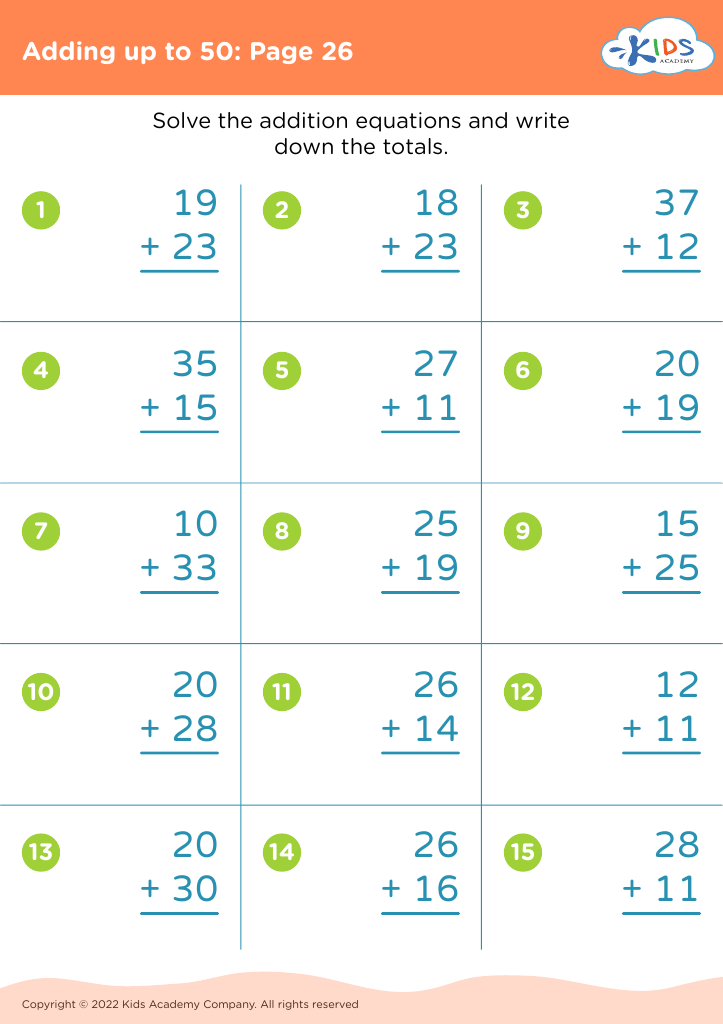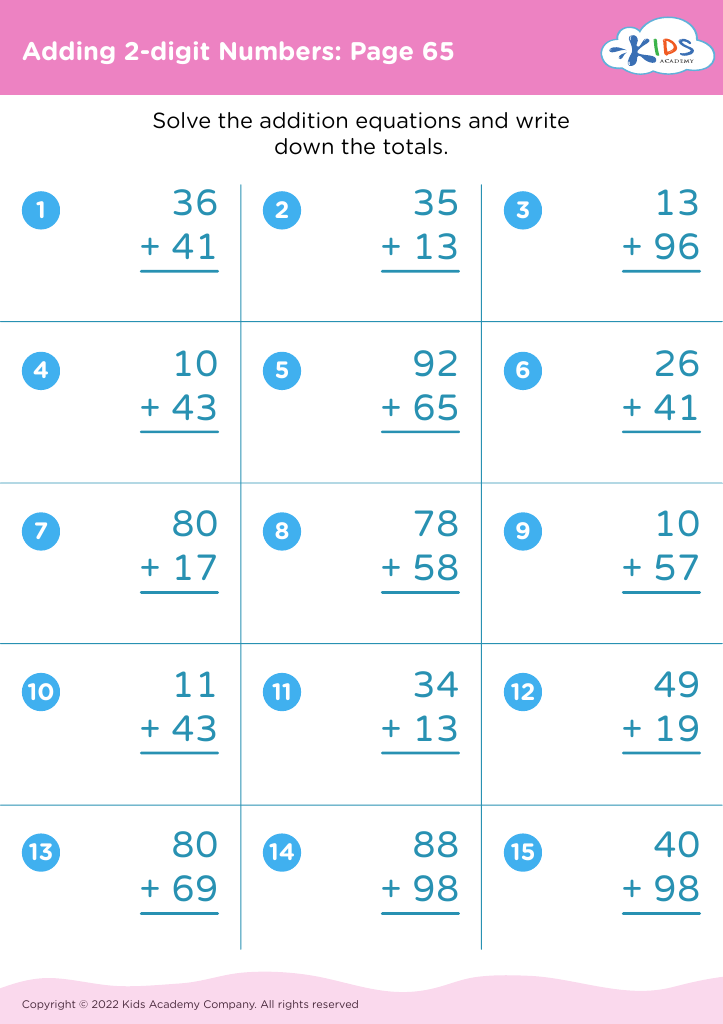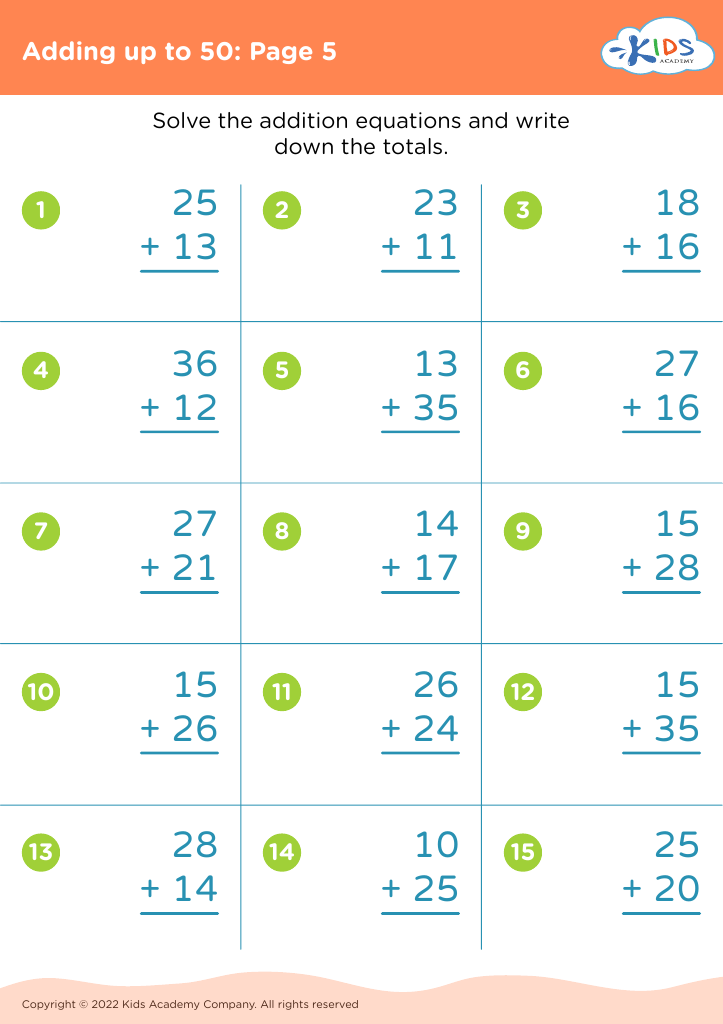Understanding adjectives Addition Worksheets for Ages 5-7
5 filtered results
-
From - To
Welcome to our "Understanding Adjectives Addition Worksheets" designed specifically for kids aged 5-7! These engaging worksheets combine fun with learning, helping young learners grasp adjectives while enhancing their addition skills. Through colorful illustrations and interactive exercises, children will explore the role of adjectives in modifying nouns as they solve addition problems. Each worksheet encourages creativity and critical thinking, making math fun and enjoyable. Ideal for classroom settings and at-home practice, our resources support early literacy and numeracy development. Let’s make learning adjectives and addition an exciting adventure for your child! Explore our worksheets today for an enriching educational experience!
Understanding adjectives and their application in sentence structure is crucial for children ages 5-7 as it lays a foundational skill for effective communication and literacy development. Adjectives enrich language by providing specific details about nouns, helping children to describe objects, people, and experiences clearly. When parents and teachers emphasize adjectives, they promote descriptive language skills that enhance creative writing and storytelling abilities.
Moreover, mastering adjectives helps improve children's reading comprehension. When children learn to identify adjectives in texts, they are better equipped to understand the context and emotions portrayed in stories. This skill encourages a lifelong love for reading, as engaging texts become more relatable and vivid.
Additionally, understanding and using adjectives fosters critical thinking. Children learn to categorize and compare, developing their cognitive skills and helping them articulate their thoughts more effectively.
Encouraging the use of adjectives also boosts confidence in communication, enabling children to express themselves more clearly in conversations and presentations. Overall, focusing on adjectives is essential in supporting early-grade learners’ literacy, creativity, and critical thinking, ensuring they develop a strong foundation for future academic success. Parents and teachers play a vital role in nurturing these skills by creating interactive and engaging learning opportunities.






















